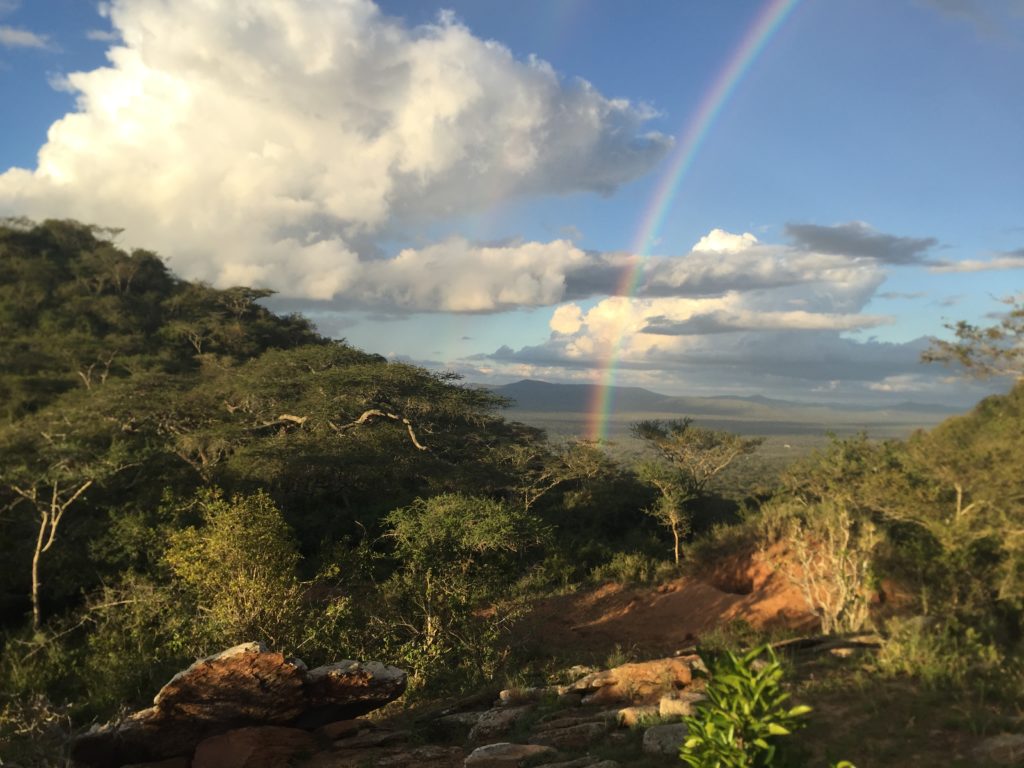Habari! Greetings from Kenya!
I am currently writing to you from a tent set near the foothills of Amboseli National Park, where I’ve had the pleasure of waking up to the howl of baboons and cackle of hyenas. And, it is within this unique setting that I felt the need to tell you about what brought me back to this lovely country.
Kenya is, and will always remain, my second home. Having traveled here as a child, I grew to appreciate the incredible diversity and richness this country offered. However, secretly set within the backdrop of beautiful safaris and gorgeous beaches was a great deal of suffering I was shielded from. As a child, I wouldn’t recognize the impact of the Kenyan AIDS epidemic until I would study this issue during my MPH at Oxford.
The project I was assigned placed me right in the field, where I would interview and work with a spread of individuals connected to sex work and the growing LGBTQ presence along coastal Kenya. For months, I spent time chatting with doctors, medical health professionals, male and trans sex workers, and community aid members, all attempting to understand where LGBTQ fit in the fabric of Kenyan life. This place, much like other post-imperial countries, struggled to release the shackles of colonialism for hard-earned equality. And this dichotomy left many in the wake of disparity. Indians, Somalis, and White Kenyans - clustered among more than 40 native Kenyan tribes - largely influence the makeup of the country’s culture. But unfortunately, little to no space was devoted to the growing LGBTQ presence in East Africa.

Being staffed at the Wellcome Trust supported KEMRI (the Kenya Medical Research Institute) in Kilifi provided me with unique insight into the challenges posed by these cultural restraints. For instance, prior to my arrival at my research post, one of the clinics was attacked in Mtwapa, a neighboring city famous for its many nightclubs and brothels. A local group of religious officials, furious over the idea of helping an otherwise condemned community, felt the need to impose barriers to care – even if it meant resorting to violence. It was, in their mind, wrong to even consider the idea of helping gay and trans men.
With time, many community workers and social activists pushed for understanding. Imams and local priests banded together to understand how HIV implicated the lives of many people, including their own loved ones, and evolved into a disease that did not discriminate when choosing victims. And with this newfound understanding, much progress followed.
Through examining this evolving dialogue, I learned a lot about people and how stifling their circumstances can be. I made friends with sex workers and immersed myself in a side of East African culture I never envisioned being privy to. Through completing my thesis, I found a sense of purpose prior to beginning my medical school training at Vanderbilt.

Janssen Therapeutics Point Scholar Ishan Asokan
Flash forward five years later, I returned to Kenya - medical degree in tow - for a deeper calling this time. With the help of the Elton John AIDS Foundation coordinated through Point, I decided to revisit my past and see how I could best capture the stories and lives of the sex worker community I grew close to.
I scoured through coded transcripts, re-living some of the highs and many of the lows, shaping the sex worker community. I would meet with local officials in Nairobi and Mombasa, trying to determine what contributed to such gross discrimination and willful neglect. I spent nights going to old nightclubs, catching up with old friends, and seeing what had changed in the five years I had been absent.
One thing remained true in my journey, which is the story I am drafting to tell. As I had developed close relationships with the sex workers, I came to learn of the mysterious fate of a man whose disappearance to this day haunts the local sex worker community.

With the help of EJAF, I am using my investigation into this man’s disappearance to fearfully describe, expose, and explain what circumstances shape the lives of male sex workers in East Africa. Though I must admit my voice will never truly capture what I heard or saw, I will do my best to captivate you, my audience, with the telling of this tale. And, through telling his story, I hope to educate you about the pervasive challenges that still affect our brothers and sisters abroad.
Like any good story teller, I rely on the three virtues of an enticing plot - drugs, sex, and alcohol - to assist in the framing of this man’s abrupt absence. As you will soon see, these elements shape the common desires and demands of Kenyan clients soliciting sex from sex workers. And, in some unfortunate instances, these young men and women become casualties in the game of existence.
Stay tuned.
PS – I can finally say that I’m a doctor and proud graduate of Vanderbilt Medical School. Thank You, POINT!

This post was written by recent Janssen Therapeutics Point Scholar Ishan Asokan.
Ishan graduated from the Vanderbilt University School of Medicine in 2017. While at Vanderbilt, Ishan served as the President of Vanderbilt’s Chapter of the AMA, became a Point Scholar in 2014, and participated in the Elton Jon AIDS Foundation Fellowship in 2015. Read more about Ishan here.

